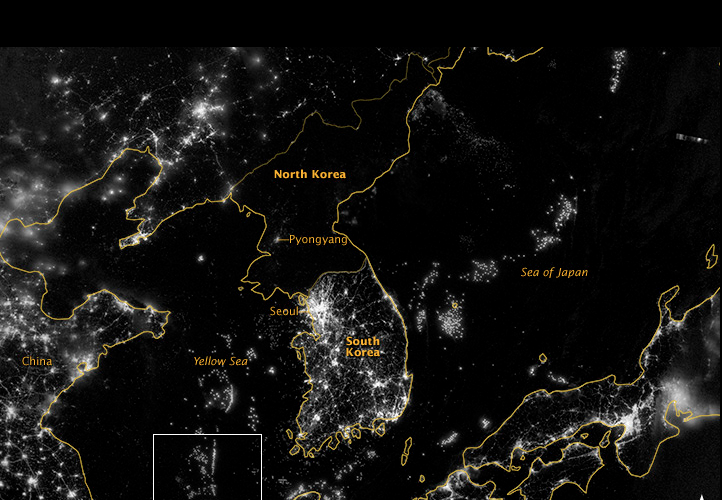About the Author
Ole Jakob Skåtun
Ole Jakob Skåtun is a freelance journalist. In addition to reporting on Korean affairs for newspapers in his native Norway, his previous work also includes freelance work from Russia.

Get behind the headlines
|
Interviews Sanctions increase regional inequality, cross-border trade – reportAdapting to int'l sanctions, N.Korean leadership redistributes resources to urban centers, according to study  As sanctions against North Korea have increased, authorities have responded by redistributing wealth and economic activity to urban centers, a recent study suggests. For the paper, Yong Suk Lee, assistant professor of economics at Williams College in Massachusets, used night-time satellite images from 1992 to 2010 to study the effects of sanctions on the geographical distribution of economic activity in North Korea. © Korea Risk Group. All rights reserved. |